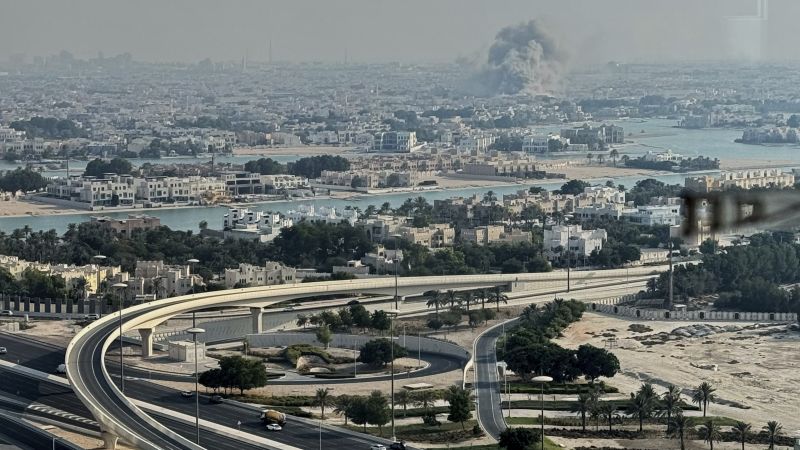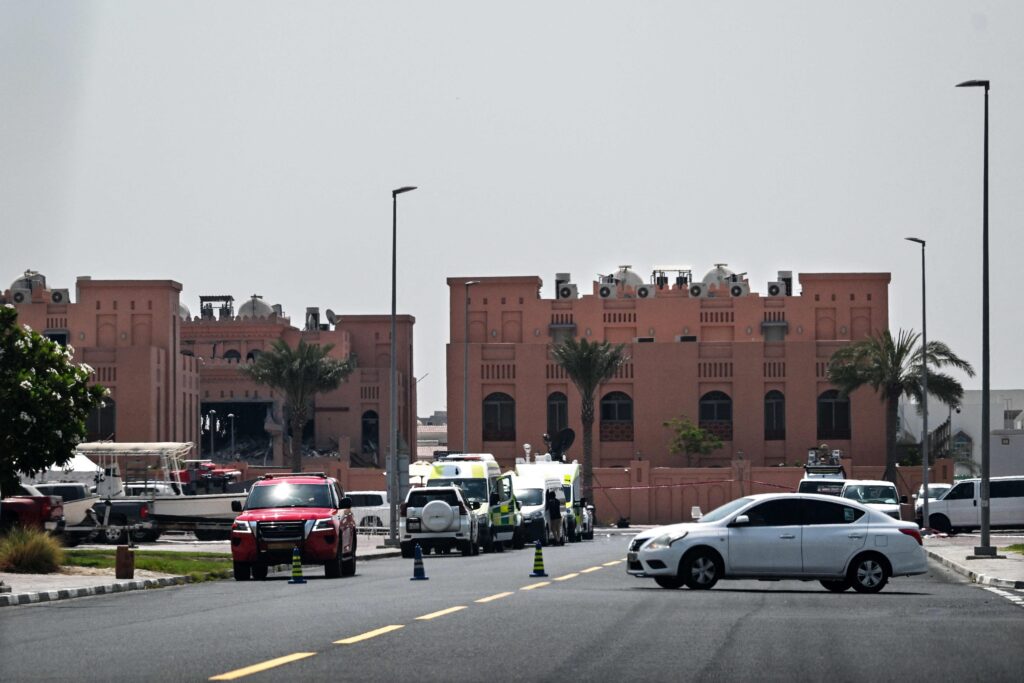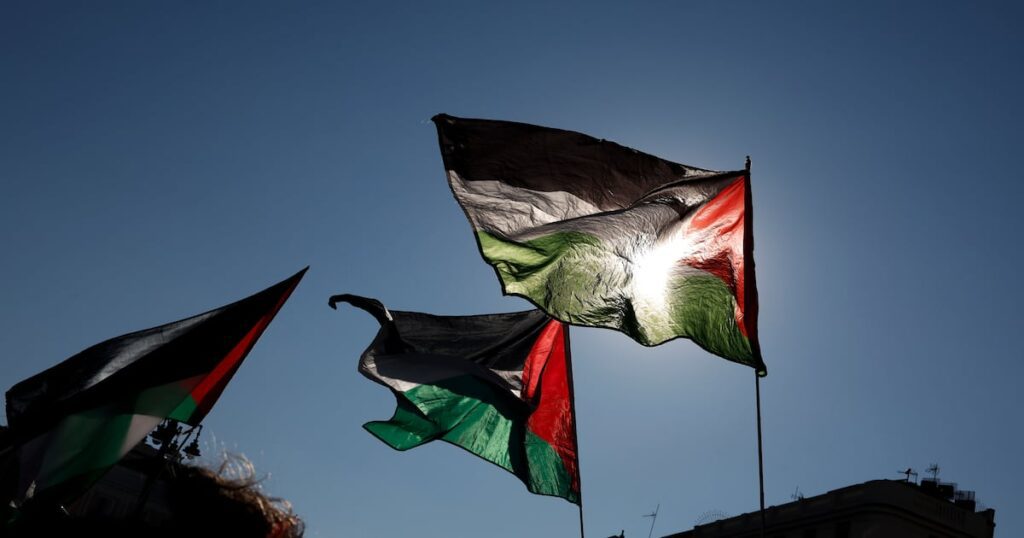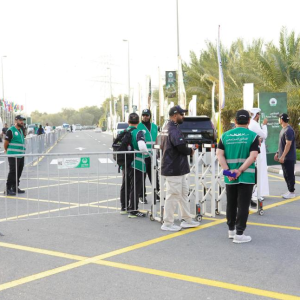Israel strike on Doha over Palestine recognition has sent shockwaves across the Middle East and the international community. The unprecedented attack targeted Hamas political leaders in Qatar, occurring at a critical moment when diplomatic efforts were underway to negotiate a ceasefire in Gaza. The incident reflects Israel’s growing frustration with the international momentum toward recognizing Palestine and demonstrates how high-stakes diplomacy can quickly turn volatile.
The attack marks a rare example of a state targeting political figures on foreign soil, and it raises serious questions about the limits of national sovereignty, the role of mediation, and the broader implications for peace in the region. Understanding the context and impact of this strike is essential to grasp the current dynamics of the Israeli-Palestinian conflict.
The Attack: A Bold and Controversial Operation
Israel’s strike on Doha was a direct and calculated move aimed at Hamas leaders who were deeply involved in ceasefire negotiations. The operation involved multiple air units striking a residential area in the Leqtaifiya district of Doha, where senior Hamas officials were reportedly meeting to discuss a proposed ceasefire. While Hamas confirmed that its top leaders survived the attack, several individuals were killed, including family members of prominent figures and a few local security personnel.

This strike was not only a military maneuver but also a symbolic statement. It communicated Israel’s willingness to act unilaterally to protect its interests, even if it meant violating international norms. By striking in Qatar, Israel challenged not only Hamas but also the very framework of diplomacy that foreign mediators rely on to resolve conflicts.
Israel’s Justification: Retaliation or Strategy?
Israel framed the strike as a retaliatory measure in response to attacks in Jerusalem for which Hamas took responsibility. Prime officials emphasized that this was an independent operation, carried out without coordination with other nations, portraying it as a decisive action to prevent further attacks on Israeli citizens.

However, critics argue that the timing and location suggest a broader strategic objective. By striking during ongoing peace negotiations, Israel sent a strong message to countries considering recognizing Palestine: it is prepared to escalate militarily to deter international shifts in support for Palestinian statehood. Many analysts interpret this strike as part of a long-term strategy to influence regional diplomacy and maintain leverage over the trajectory of Palestinian recognition.
Immediate Regional and Global Reactions
The strike on Doha triggered immediate condemnation from nations around the world. Qatar, as the host country, denounced the attack as a clear violation of its sovereignty and suspended its participation in ceasefire talks. Officials in Doha described the strike as a form of state terrorism, emphasizing that it threatened ongoing humanitarian efforts in Gaza and undermined attempts to secure the release of hostages.
Other regional powers also expressed concern. Nations in the Gulf and beyond warned that such unilateral military actions could destabilize an already fragile Middle East. There was a consensus that striking in a neutral country not only escalates the conflict but risks drawing additional nations into a confrontation that had previously been geographically contained.
Even within Israel, the move sparked debate. Some viewed it as a necessary demonstration of power, signaling to Hamas and other hostile entities that attacks on Israel would be met with decisive action. Others criticized it as impulsive, warning that it could undermine Israel’s diplomatic standing and strain relationships with key allies.
The Human Cost
Beyond political and diplomatic ramifications, the strike had a significant human impact. Casualties included not only targeted Hamas officials but also innocent civilians and security personnel who were in the area at the time of the attack. Families were displaced, homes were destroyed, and the local community faced immediate trauma.
The psychological impact cannot be understated. Such attacks reinforce a sense of insecurity and fear not only in Gaza and Doha but across the region. The targeting of political leaders in foreign territory sends a message that no location is entirely safe, potentially discouraging future diplomatic efforts in politically sensitive zones.
The Broader Implications for Middle Eastern Diplomacy
Israel’s strike on Doha is a turning point for diplomacy in the Middle East. By targeting Hamas leaders on foreign soil, Israel challenged the conventional norms of conflict resolution and international mediation. Qatar had been a key player in facilitating negotiations between conflicting parties, and the strike undermined its role as a neutral mediator.

This attack also signals to other nations that supporting Palestinian recognition could provoke direct Israeli retaliation. Countries weighing the decision to formally recognize Palestine may reconsider or approach the issue with heightened caution. Israel’s willingness to take military action in response to diplomatic developments reflects a broader strategy to maintain leverage over the Palestinian statehood process and assert its influence across the region.
The Role of International Mediation Under Threat
The strike casts doubt on the effectiveness of international mediation in resolving the Israeli-Palestinian conflict. Traditionally, neutral countries such as Qatar, Norway, or Switzerland have acted as intermediaries to facilitate dialogue. By conducting a military strike in Doha, Israel challenged this model, showing that even neutral zones are vulnerable if they host political figures seen as adversarial.
This development may have long-term consequences. Countries willing to mediate may face pressure to avoid hosting conflict-related negotiations, fearing that their territory could become a battleground. If this trend continues, the channels for peaceful resolution may shrink, making it even more difficult to achieve lasting agreements.
Global Political Consequences
The Doha strike also carries implications beyond the Middle East. It has prompted discussions in international forums about the limits of state actions, the protection of sovereignty, and the enforcement of international law. Countries around the world are evaluating their responses, balancing condemnation of unilateral strikes with the need to maintain diplomatic engagement with Israel.
Furthermore, this incident could influence U.S. foreign policy in the region. Washington may face pressure to reaffirm commitments to both Israeli security and Palestinian rights. The strike underscores the delicate balancing act required to support Israel while advocating for stability and diplomacy in the Middle East.
Israel’s Strategic Calculations
Israel’s decision to strike Doha reflects several strategic considerations:
- Deterrence: Demonstrating the ability to target Hamas leaders anywhere, even outside Gaza, serves as a warning to adversaries.
- Diplomatic Pressure: By striking during ongoing negotiations, Israel aims to influence the decisions of countries considering Palestinian recognition.
- Domestic Politics: Strong military actions can consolidate domestic political support, reinforcing the government’s stance on national security.
- Regional Messaging: The strike sends a message to neighboring countries that Israel prioritizes its security interests over international conventions when necessary.
These calculations suggest that Israel views military operations as an integral part of both defense and diplomacy, using force to shape negotiations and international perceptions simultaneously.

Potential Risks and Backlash
Despite the perceived strategic benefits, Israel faces significant risks from this action. International condemnation could strain relationships with key allies, including Western nations and neighboring Arab states. Additionally, targeting political figures in neutral countries may prompt retaliatory measures, increasing the likelihood of broader regional conflict.
There is also a humanitarian concern. Escalation of violence can worsen conditions in Gaza, leading to further civilian casualties, displacement, and a deepening of the humanitarian crisis. Public sentiment across the Middle East may harden against Israel, reducing prospects for dialogue and reconciliation in the near future.
The Future of Palestinian Recognition
The strike on Doha highlights the high stakes of Palestinian recognition. As more countries consider formally recognizing Palestine, Israel’s actions demonstrate the lengths to which it is willing to go to counter such moves. This may slow the momentum for international recognition or lead to more cautious approaches, but it also risks alienating countries that support Palestinian statehood.
In this context, the Doha strike becomes not just a military act but a political signal. It emphasizes the connection between diplomatic developments and security considerations, showing how regional power dynamics can influence decisions on sovereignty and statehood.
Conclusion: A Turning Point in Regional Dynamics
Israel’s strike on Doha over Palestine recognition represents a watershed moment in Middle Eastern politics. It underscores the fragility of diplomatic channels, the complexity of international law, and the intensity of the Israeli-Palestinian conflict. By targeting Hamas leaders on foreign soil, Israel has set a precedent that challenges conventional norms of mediation and conflict resolution.
The strike is a reminder that military actions can directly intersect with diplomatic efforts, shaping the trajectory of regional politics. The consequences will continue to unfold, affecting the stability of the Middle East, the prospects for Palestinian recognition, and the strategies of nations involved in mediation efforts.
As the international community reacts, the Doha strike will likely be studied as an example of how unilateral military operations can reverberate through diplomacy, law, and regional stability. Israel’s decision reflects both the risks and the power of military strategy in influencing political outcomes, and it will shape discussions on Middle Eastern diplomacy for years to come.
Do follow UAE Stories on Instagram
Read Next – EU-UAE Free Trade Agreement: A New Era of Partnership












